The week following the election my friend Alicia told me that she did not feel comfortable anymore in our predominantly White church.
When I asked why, Alicia said, “I don’t want to be around people who don’t want me.”
Alicia is Black and was referring to the infamous statistic that roughly 81 percent of white evangelicals supported Trump (The Atlantic). Fortunately, Alicia braved attending church and the pastor addressed the race issue. Alicia told me later that she wept the whole service, and with a grin, said that several of the White people around her were especially friendly after the service.
Even before the election, I had wanted to do something about the growing gap in the racial divide. And yet, I am one White woman living in the suburbs of Dallas; what difference could I make? Inspired by my honest conversations with Alicia, I realized that it may be a small effort — but I am doing something.
I have witnessed racial reconciliation in one-on-one relationships, especially in my friendships with three amazing Black people, which began with one interview, one difficult conversation, and one new pastor at my church. (To keep things simple, I will use the terms Black and/or White to describe my friends.) After the election my friend said she didn't feel comfortable in our mostly White church. Click To Tweet
Prentice: One Interview
Back in 2006, a local nonprofit asked me to interview a teenager named Prentice Richmond. His was a compelling story about a kid who was Black with an extremely hard life but who had chosen at 15 years old to give back to his community by coaching a youth basketball team.
As Prentice told me his story, I was thankful that I had brought my recorder, because at one point, I stopped writing and just cried.
A couple of years later, I saw Prentice again—relieved to see him alive! —and this time I asked for his cell number to keep in touch.
Today, Prentice is 25 years old, a Training Officer with the Dallas Sheriff’s Department, and part of our family’s life. Upon asking Prentice about our relationship now, he said, “My community instilled in my head, ‘This is the way White people are!’ So, it took me a long time to open up to you.”
Prentice describes our relationship as mother and son. It wasn’t always like that, but he says he appreciates that I ask him the same questions that I ask my own boys: “It is my mother being concerned about me.”
I think the catalyst that made our relationship more real was when several years ago Prentice agreed to come to our house for Christmas Eve. Traditionally, our family attends church together and then we come home to tortilla soup, tamales and silly group games. After the games that first Christmas Eve, Prentice told me that he had never heard me laugh and joke around. I realized that in the past when Prentice and I had met, I felt the pressure to ask him about school studies, fill out scholarship applications or get his resume submitted for a job. I wondered if my own boys thought that about me in their high school years.
I asked Prentice for his advice on friendships with people of different races. He said, “Spend time together. And don’t take me to a museum to learn about you, take me to where you stay.”
My takeaways: laugh more and eat together. Don’t take me to a museum to learn about you, take me to where you stay. Click To Tweet
Rosemary: One Difficult Conversation
“So you will be my White friend,” Rosemary said, and we both started laughing. But we hadn’t been laughing before.
I met Rosemary Knight about three years ago when she was new to our church and was interested in going on our women’s mission trip to Nicaragua. Our relationship moved into friendship on that trip. I don’t remember how the conversation got started, but while taking a break from painting a house, I asked Rosemary if she was uncomfortable at our church. She said yes and I said I didn’t blame her. Looking back on the conversation, Rosemary reflected, “That shocked me. She’s White, why is she saying that? It was like a brokenness began in you.”
After returning home from Nicaragua, Rosemary invited me to her home for breakfast. She said, “I trusted you, so I invited you into my comfort place.” Over bacon and eggs, Rosemary told me that even though our church was mostly white, she chose to attend because it was in her neighborhood. She felt she could help us with diversity, but admitted to not realizing how lonely it would feel.
The week following the Dallas shooting last summer, Rosemary, two other Black women and I carpooled to a community prayer meeting. Later, Rosemary asked me if I felt uncomfortable on the drive and I asked her if there was anything I could have done better. It was hard to hear but she challenged me saying, “Lesa, you move too fast too soon with people, it’s like you’re interviewing them. You need to earn the right to get personal.”
I have learned that conversations with people of different races can be uncomfortable. I need grace from my friends, like Rosemary, to let me know when I get it wrong, and then help me to try again. Conversations with people of different races can be uncomfortable. We need grace. Click To Tweet
Markus: One Black Pastor in My White Church
Markus Lloyd has been the Director of External Focus at our church for almost two years. I had respected Markus for preaching about racial reconciliation in our predominately white church, but I didn’t really know him. He had ruffled some feathers, but I found it life-giving that what I was concerned about Monday to Saturday intersected with what I heard on Sunday morning.
Because Markus is Black, after one of the racially charged arrests I stopped him one Sunday morning to ask him his thoughts on the tragedy. After talking for a bit, Markus said, “You seem to care about some of the things I care about,” and he invited me out for coffee.
When we met, I asked Markus to tell me his story and I admired him not shying away from the messy parts about being the only Black person on staff at our church. So when Markus asked about me, I chose to be real and include the messy parts of my life, too.
Shortly after our coffee, Markus asked me to join a book club with the specific purpose of discussing race issues. It was refreshing to hear people from very different backgrounds discuss navigating race relations. And yet, honestly, sometimes it was tense and frankly exhausting and I wanted to quit. Driving home from one especially awkward meeting, I wondered if this was how Markus felt every day in an almost all White church.
When I asked Markus why he took the time to befriend me, he said that he sees our friendship as a kind of partnership. He said, “When you start to look for change to happen you are always looking for fellow sojourners, so when you expressed interest, I was like, ‘Oh! Let me scoop her up.’” He told me he’s learned that he can’t truly be a friend with someone until they have the “race conversation.” Markus also expressed the realization that the first conversation can be difficult for the White person because of the need to listen without defensiveness. Otherwise, the Black person does not feel safe to unpack their hurts, and it doesn’t work.
I have a feeling I will learn this lesson over and over again: ask questions then shut up and listen. He’s learned he can’t truly be a friends until they have the 'race conversation.' Click To Tweet
The foolishness to believe that we can make a difference
There is a Franciscan Benediction that I pray today when I get discouraged about the magnitude of the racial divide. It begins:
“May God bless us with discomfort at…superficial relationships.” And finishes with:
“May God bless us with enough foolishness to believe that we can make a difference in this world.“
Several months ago, a Black family moved into the rental house across the street from us. Over the years many folks have moved in and out, and at some point I tired of reintroducing myself. After the election, when I saw the family in their front yard, I walked across the street and started to ask the mom what she did for a living but stopped myself. This wasn’t an interview. I did ask the names of her adorable kids. When I got back home, I wrote down their names so I wouldn’t forget them, and prayed my Franciscan Benediction over us all.
Books that have helped me:
- Jesus and the Disinherited by Howard Thurman
- Let Justice Roll Down by John Perkins
- Letters To A Birmingham Jail: A Response to the words and dreams of Dr. Martin Luther King, Jr. Edited by Bryan Loritts
- Roadmap to Reconciliation: Moving Communities into Unity, Wholeness and Justice by Brenda Salter McNeil
MLK Event Interview – Short Cut from 617 Production Group on Vimeo.
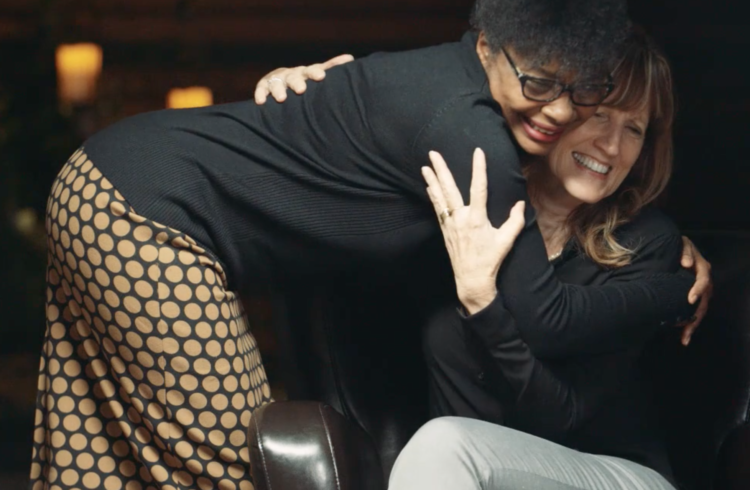


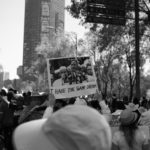


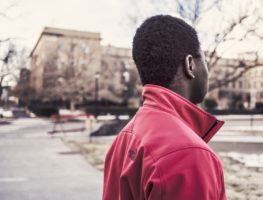
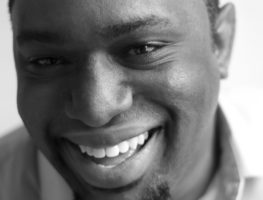
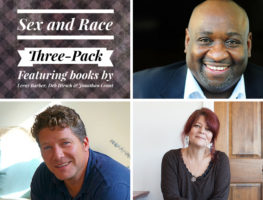
Missio Alliance Comment Policy
The Missio Alliance Writing Collectives exist as a ministry of writing to resource theological practitioners for mission. From our Leading Voices to our regular Writing Team and those invited to publish with us as Community Voices, we are creating a space for thoughtful engagement of critical issues and questions facing the North American Church in God’s mission. This sort of thoughtful engagement is something that we seek to engender not only in our publishing, but in conversations that unfold as a result in the comment section of our articles.
Unfortunately, because of the relational distance introduced by online communication, “thoughtful engagement” and “comment sections” seldom go hand in hand. At the same time, censorship of comments by those who disagree with points made by authors, whose anger or limited perspective taints their words, or who simply feel the need to express their own opinion on a topic without any meaningful engagement with the article or comment in question can mask an important window into the true state of Christian discourse. As such, Missio Alliance sets forth the following suggestions for those who wish to engage in conversation around our writing:
1. Seek to understand the author’s intent.
If you disagree with something the an author said, consider framing your response as, “I hear you as saying _________. Am I understanding you correctly? If so, here’s why I disagree. _____________.
2. Seek to make your own voice heard.
We deeply desire and value the voice and perspective of our readers. However you may react to an article we publish or a fellow commenter, we encourage you to set forth that reaction is the most constructive way possible. Use your voice and perspective to move conversation forward rather than shut it down.
3. Share your story.
One of our favorite tenants is that “an enemy is someone whose story we haven’t heard.” Very often disagreements and rants are the result of people talking past rather than to one another. Everyone’s perspective is intimately bound up with their own stories – their contexts and experiences. We encourage you to couch your comments in whatever aspect of your own story might help others understand where you are coming from.
In view of those suggestions for shaping conversation on our site and in an effort to curate a hospitable space of open conversation, Missio Alliance may delete comments and/or ban users who show no regard for constructive engagement, especially those whose comments are easily construed as trolling, threatening, or abusive.